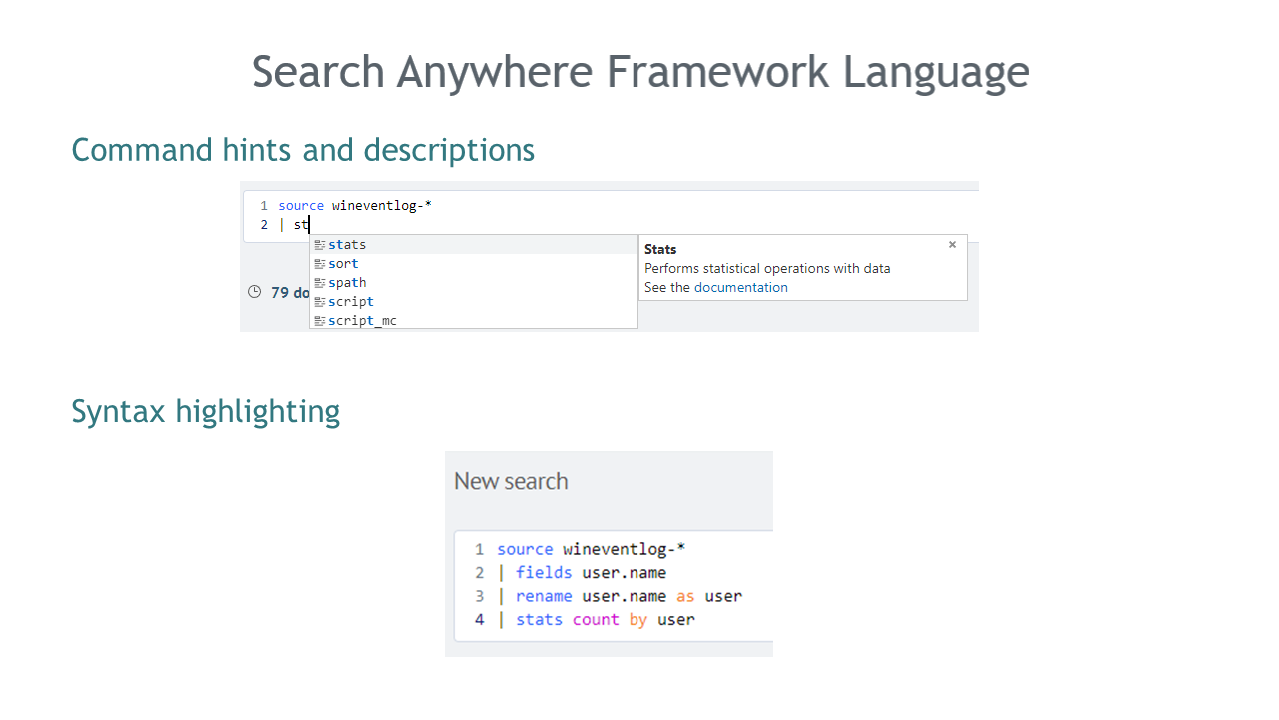Search Anywhere Framework Language
General Description
Search Anywhere Framework Language (hereinafter referred to as SAFL) is a specialized query language designed for working with data in the Search Anywhere Framework. It provides users with powerful tools for performing various data analysis and processing operations.
Key Features
The key features of SAFL include:
- Flexibility:
SAFLoffers a wide range of operators and functions, allowing users to perform various types of queries and analyze data according to their needs - Data Pipeline Processing: The language supports the concept of data pipeline processing, allowing users to create chains of operations where the result of one operation becomes the input for the next. This provides flexibility and efficiency in data analysis
- Aggregation and Grouping:
SAFLallows for data aggregation based on various criteria and grouping of data to obtain summary results - Filtering and Sorting: The language provides capabilities for filtering data based on specified conditions and sorting results based on different fields
Tips and Syntax Highlighting
An important aspect of working with SAFL is the support for syntax highlighting and autocomplete functions, which significantly facilitate the process of writing queries and reduce the likelihood of errors.

Syntax highlighting allows the user to visually distinguish various elements of the query, such as keywords, operators, and field names, making the code more readable and understandable. This helps users to orient themselves in queries more quickly and identify potential errors.
Additionally, the autocomplete feature provides the user with prompts and suggestions for completing the code based on the context of the query. This speeds up the process of writing queries and helps avoid typos or misuse of keywords and field names.
Using SAFL Functions
There are numerous functions in the Search Anywhere Framework Language, each with its unique functionality and applicability.
To familiarize yourself with the full list of available functions and operators, as well as to get detailed instructions on their usage, you can refer to the Search Anywhere Framework Language section.